
Student Spotlight: Tom Fuller, Garden Design
Tom Fuller has always had a love of the great outdoors and after leaving school went to a local specialist college to study Horticulture. A fair
As a not-for-profit foundation, we are so confident in the price of our Diploma’s that if you can find the same level of education for less, we will match it!

Enrol at any time & choose your start date. No term times or semesters.

No previous qualifications required! Age 16+ and an interest & enthusiasm for garden design.

Online: 8-10 months (flexible)
Online Fast-Track: 14 weeks

No exams — Tutor assessment only, portfolio moderation by AIM Qualifications.
No qualifications are required for this course so this Diploma in Professional Garden Design is the ideal course for garden enthusiasts. It will teach you step by step the professional techniques required to create amazing designs for your own garden, or how to start your own garden design business or enter a new career in the industry. If you already have a gardening or Garden Design business but don’t have formal qualifications, then you can study this Professional Diploma flexibly to fit around your existing clients.
If the answer is yes… then this is the course you are looking for!
The NDA Diploma in Professional Garden Design will put you on the path to starting the business you have always wanted. It will also give you the opportunity to study one of our degree courses (such as BA (Hons) Design for Outdoor Living,) if you decide you want to push your skills further.
You will study eight dedicated units during this professional diploma
This unit introduces you to the purpose of garden design and the development of key garden design trends. In addition, it teaches you about the role and responsibilities of the garden designer and the main principles garden designers work with in the present day. This unit also includes:
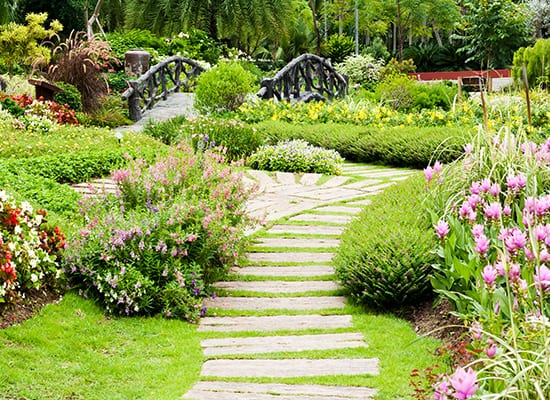
Within this unit, you will learn about the components that make up a garden, exploring core elements that are common within a successful design scheme. You will learn how these ingredients work together to influence the appearance, usability and function of a garden space. This unit also includes:
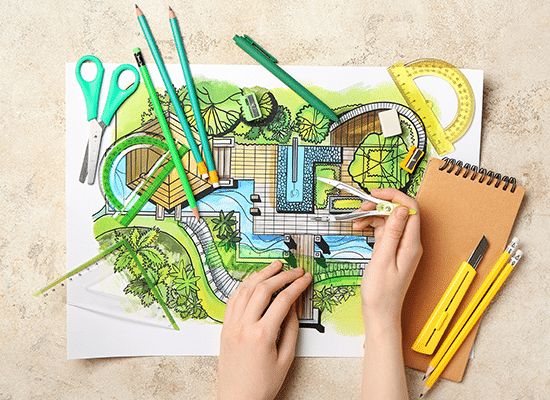
Within this unit, you will learn how to measure a garden space and draw it to scale. You will also learn how gather important information about the site and how this information will influence your garden design decisions. You will develop drawing skills and produce your own site survey plan. This unit also includes:
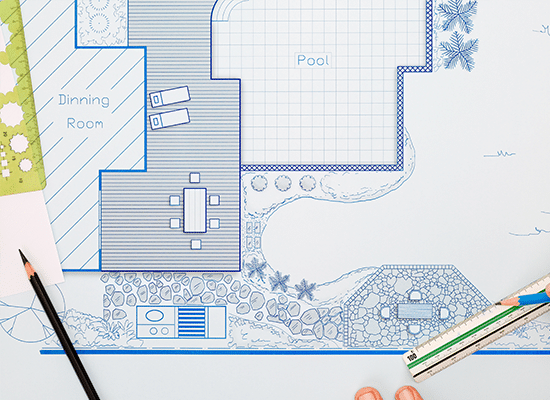
This unit will inspire your creativity by developing your garden design skills. You will develop spatial planning skills and explore innovative ideas related to the aesthetics and practicality of garden layout. You will learn how to produces sketches, technical plans and elevations, how to select your strongest designs in relation to client briefs, as well as how to present this information professionally to clients, trade or contractors. This unit also includes:
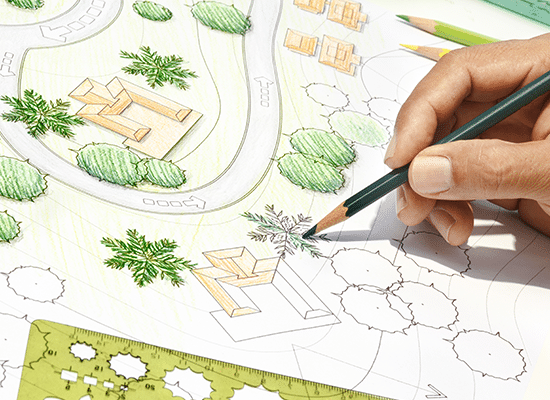
This unit focuses on products and materials for hard landscaping and water features, along with the items that provide the finishing touches to the garden space, such as furniture, lighting and accessories. You will explore products and materials for their practical, ethical, and aesthetic characteristics, making suitable choices for a garden scheme and presenting these to meet a client brief. This unit also includes:
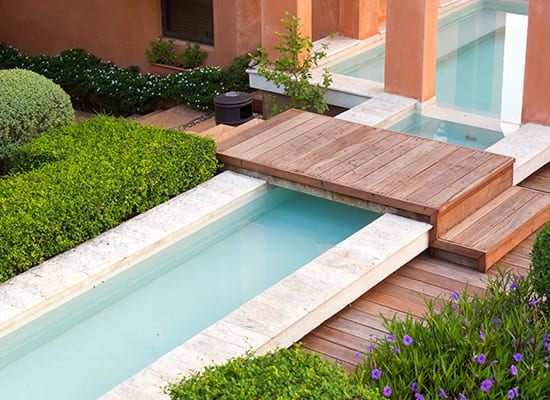
This unit will help you to understand plant biology, the environmental requirements of plants and the importance of selecting appropriate planting as part of your design. It looks at how you source your plants and the practical and aesthetic considerations to be considered when developing a planting plan to a design brief. In addition, you will learn how to present planting plans and specifications to a professional standard. This unit also includes:
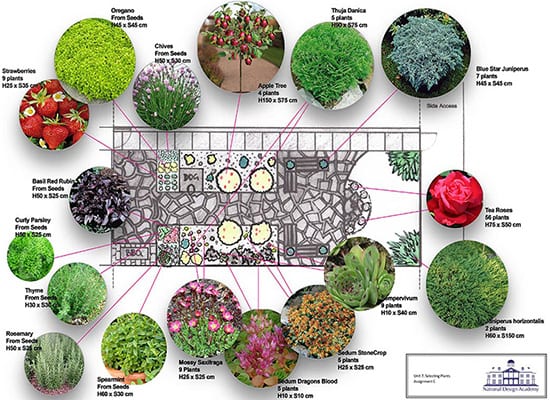
This unit explores the wide array of creative and technical roles and diverse possibilities for professional engagement and career progression in this dynamic and competitive industry. It will help to prepare you to work successfully in the professional environment, whether for an established practice or setting up a garden design business. With a focus on your personal and professional development, you will consider the steps you should take to achieve your own progression ambitions. This unit also includes:

For the final unit of the course, you bring together all your newly learned skills by producing conceptual designs and a design pack to create a wonderful garden design for a new client. When complete, your work will form an asset to your developing portfolio to show future clients. This unit also includes:
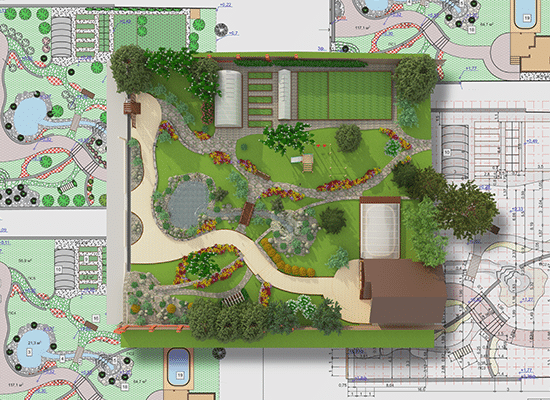
A sample of work completed by our talented garden design students
Choose from flexible online learning or online fast-track (zoom lectures).
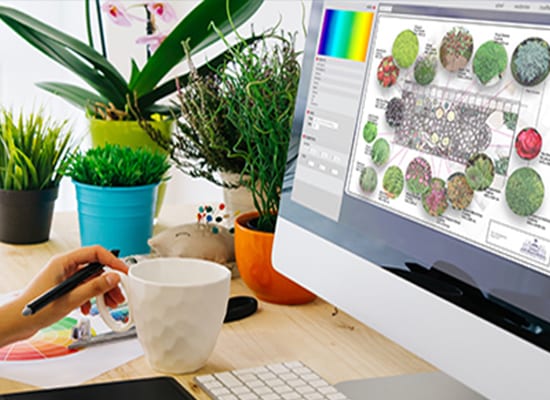
8–10 Months (Flexible)
The online Professional Diploma course is designed to be flexible to allow you to study around your career, family, and other commitments. Choose your own start date and study from anywhere in the world as long as you have an internet connection.
The online diploma is a 8-10 month course however, many students who have more time to study complete earlier. All assignments consist of design projects which are assessed by your Personal Tutor – there are no examinations.
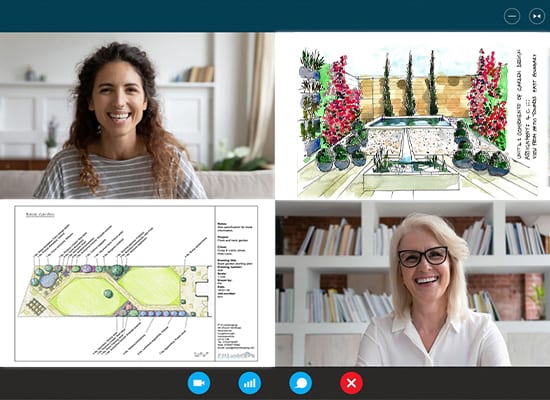
14 weeks home study & online lectures (via zoom)
For students who want all the benefits of remote online learning, but are also looking for more structure and live interaction with tutors and peers, the ‘Online Fast-Track’ course offers an ideal mix.
The course consists of a 8-week study period that covers each of the 8 subject units in the Diploma course, one unit per week. 2.5hr live zoom lectures are organised two days per week. Up to 4 ‘Independent Study’ weeks within the duration let students complete any unfinished assignments.
UK residents pay approximately 50% course fees and funding from the UK government will pay the rest.
All NDA Professional Diplomas are accredited by AIM Qualifications. NDA is the only design school to be able to offer funding & student loans because our Diplomas are fully accredited.
There are two ways for UK students to pay for their Online Diploma:
Alongside a computer and an internet connection, there is also essential and recommended design equipment required to complete your NDA Course, all available through the NDA Art Shop at student prices!
Successful completion of your NDA Diploma provides a guaranteed place on one of our online BA (Hons) degrees, such as BA (Hons) Design for Outdoor Living, with a generous Progression Scholarship. Degrees are validated by De Montfort University (DMU).
For those who wish to continue their study at an on campus university, all NDA Professional Diplomas carry a UCAS tariff point value. You can top up any existing UCAS points you may have with points from an NDA Diploma.
Diploma in Professional Garden Design = 24 UCAS tariff points.
The Diploma in Professional Garden Design is designed to help you start your own Garden Design business. Like the Diploma course itself, you can work flexibly for your clients around your family commitments and gradually expand your business.
Many of our Diploma students start their own business and study for their degree flexibly alongside their client projects.

Tom Fuller has always had a love of the great outdoors and after leaving school went to a local specialist college to study Horticulture. A fair

Baz Grainger was already highly successful in the fashion industry, working as Head of Apparel for Timberland, but something was nagging at him. After visiting the

The best way to find out what it’s like to study an adult education course is to ask someone who has done it! We love to
Hear what past and present students have to say about studying at the NDA
UK students pay approximately 50% of the full course fee – the balance is funded by the UK Government’s Adult education budget (AEB).
The National Design Academy is the only design school to be able to offer this funding as our Diplomas are all fully accredited by AIM Qualifications.